The PRI Academy has partnered with Contrast Capital to develop the content of its training courses. Having developed the advanced course on ESG integration some years ago, we recently worked with the PRI Academy to update the content of its flagship course: Foundations in RI.
Re-launched last week, this course features new case studies and the latest thinking on ESG integration and active ownership approaches. Available as an online learning tool, it is designed for busy investment professionals wishing to gain a structured and comprehensive understanding of ESG issues and how they can be applied in investment decisions. The course is available for CFA continuing education credits. Contrast Capital is also supporting the CFA UK in the development of their learning materials for the Certificate in ESG Investing (to be launched in 2019). To complement these resources, Contrast Capital offers customized, in-person training for asset managers, family offices and institutional investors.
So why are we investing so much in training?
We believe that providing professional training is key to mainstreaming responsible investment. More than 100 PRI signatories (including the likes of AXA, Vanguard, Swiss Re, BlackRock and Amundi) have recognized this and made training one of the main objectives of their RI strategy for 2019*. This may sound like a small group but together they employ 20% of the 1.5 million staff working for PRI Signatories and manage 30% of the total AUM committed to RI. So their leadership in this space can go a long way towards changing investment practices.
We think meaningful ESG integration remains challenging. In our opinion, in order to truly add value to their investment process, investment teams must take ownership of the ESG research process, decide which ESG issues are most material to specific investment opportunities, engage directly with companies on these strategic issues as part of their regular meetings with management teams, work with raw data and specific KPIs to adjust their financial models and estimate the impact of their investments on global environmental and societal challenges. This does not mean investors should stop using external research produced by specialized service providers. It does mean however that they need to be much more discerning about what they focus on and why. For many investors, this requires a more granular and sophisticated understanding of ESG issues than is currently the case.
We see demand for RI education along the whole value chain. Education is not only needed amongst investment professionals but also amongst client relationship managers, financial advisors, trustees and the ultimate clients and beneficiaries. The appetite for more education on RI is growing, particularly amongst the younger generation. In a recent study by First State Investments and KeplerChevreux, over 80% of millennials surveyed pointed to education as the #1 driver that would enable more allocation into RI products.
With over $80 trillions of assets now backing the PRI principles, awareness levels are at an all-time high. But turning a high-level commitment into an everyday reality for all investment staff is not straight-forward, particularly when the approaches to implementing RI and the terminology associated with it keep evolving. The momentum for sustainable and responsible investment has never been greater, giving investment professionals a clear the opportunity to upgrade their skill sets today to meet the needs of tomorrow.
* Source: Data from 2018 PRI Transparency Reports

